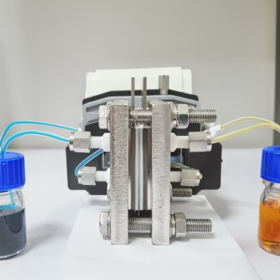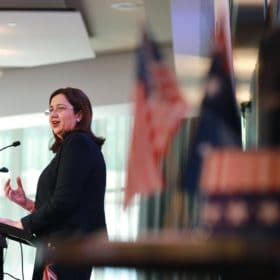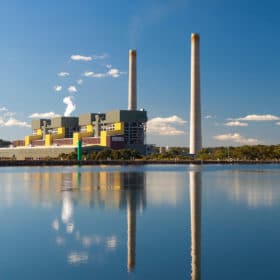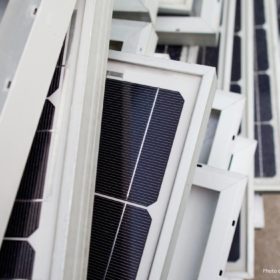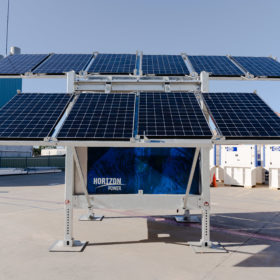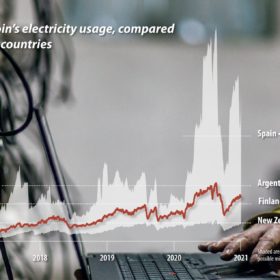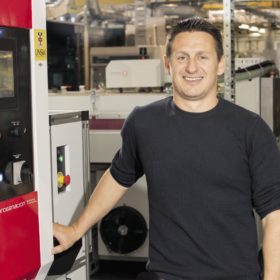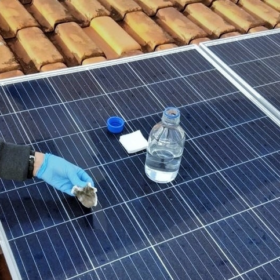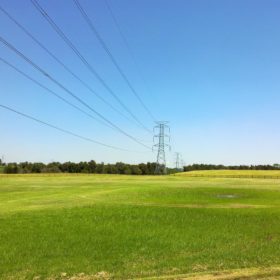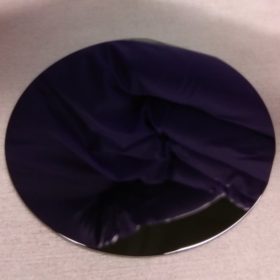Redox flow battery with capacity retention of 99.98% per cycle
The battery was fabricated by Chinese scientists with a low-cost electrolyte made of a derivative of TEMPO, which is a well-known electroactive aminoxyl radical used with several applications in chemistry and biochemistry. According to the researchers, the battery shows high redox potential and is crossover-free.
Queensland begins its QREZ development with a “measly” 3.3 GW allocation
The Queensland government has published its draft plan to unlock 3,300 MW, or 3.3 GW, of new renewable generation as part of the first stage of developing state’s three Renewable Energy Zones (REZs).
Is gas or storage the ideal dispatchable replacement for coal? A NSW case study
Everything you see exists together in a delicate balance. Octopus Investments Australia’s Investment Director of Energy Markets, Lumi Adisa, takes a Lion King-themed deep dive into New South Wales to find out what comes after coal.
Reuse or replace? Analysis considers all options for underperfoming PV modules
In a new report, experts from the International Energy Agency Photovoltaic Power System Programme (IEA-PVPS) have assessed the economical and environmental benefits of repairing and reusing or replacing solar modules that are not complying with a 30-year expected lifetime. They found that reusing offers the best environmental impact in all cases, while the profitability of this option is currently guaranteed only by rooftop PV under certain conditions. As for large-scale solar, module replacement remains the most competitive option.
Distribution networks set to shrink: standalone solar hybrid systems are safer, more reliable
Western Australia leads the world in successfully implementing renewables-based energy generation for far-flung customers. Unique joint venture and pioneer in the field, Boundary Power, has been widely recognised for its innovations and is ready to repeat its SAPS successes across Australia and the Asia-Pacific.
Sunday read: Crypto’s energy conundrum
In a financial world of stocks, bonds, foreign exchange, and credit cards, trillions of dollars are traded daily, with money flows handled by a bevy of databanks. In the world of cryptocurrency, billions of dollars worth of Bitcoin are traded through as many as 400,000 transactions per day, consuming the energy supply of a modernised country. The quirk is a “proof of work” feature that provides decentralised security. Is Bitcoin’s energy usage all for nothing, or is it a game-changer for renewable assets and generators? Tristan Rayner explores.
Saturday read: Cloud looms over PV’s silver lining
Should heterojunction solar technologies be temporarily shelved? Could copper plating replace screen-printed silver conductive surfaces in cells? Why are tandem cells a likely successor to PERC? Brett Hallam recently sat down with Natalie Filatoff in Sydney to explain the findings of a new study by the University of New South Wales (UNSW) that sought to answer these controversial questions.
Solar panels host microbes that may be used for biotech applications
Scientists in Brazil have found that photovoltaic modules may be a repository of specialised microbes in tropical regions. According to them, these micro-organisms may be used in sunscreens, pigments for processed foods, chemicals, textiles, pharmaceuticals, and cosmetics.
Australian first with 3 GW Central-West Orana REZ formally declared
Australia’s first coordinated renewable energy zone is to be built in the New South Wales central west with the state government revealing the Central-West Orana REZ, which will deliver at least 3 GW of renewable energy into the grid, has been formally declared.
Gallium arsenide nanowire solar cell with 7.7% efficiency
Norwegian scientists have developed a gallium arsenide (GaAs) nanowire solar cell that can be used as a top cell in a dual tandem cell with a bottom silicon cell. The device is claimed to be the most efficient single-junction GaAs nanowire solar cell grown on a silicon substrate so far.
